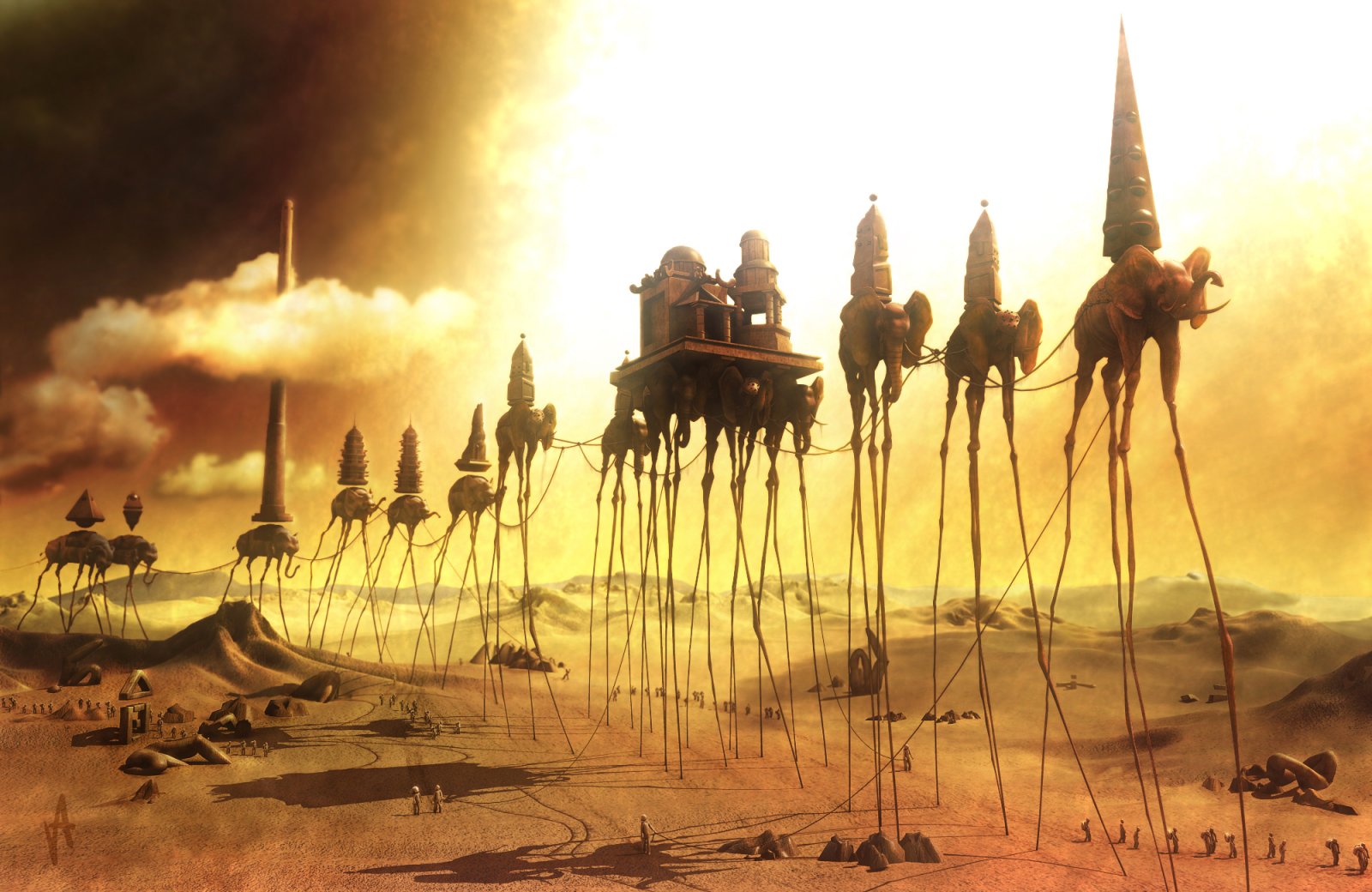I enjoy surrealist artwork, and its capability to invoke the imagination beyond the realms of the everyday. Nicholas Roerich is one artist who I have previously discussed, accomplishing this internal provocation skilfully. One problem I identify with most role-playing game products and the artwork therein (my own included) is an adherence to safe genre tropes. A guy with a sword looks like a guy with a sword. When writing, surrealist artwork, particularly those pieces produced in the early 20th century, seem to violate my safe and well-worn boundaries, challenging me to consider something fresh. I think good artwork will do this: it requires a response. That can sometimes be uncomfortable to confront because a response is fairly inevitable. For instance, what do I do with the painting below?
I can either dismiss it as foolishness, I can accept it as a wonderfully imaginative piece, I can accept parts of it (like the concrete nature of the ship, but dismiss the fanciful aspects), or allow some other kind of response entirely. The point is, I have to respond. What's great about artwork is that it expresses something I may or may not have considered myself. And that is good. The artwork I will be discussing today is that of Salvador Dalí (1904-1989). His work, like the best artwork, demands an immediate response. But more so, it is transcendent of the laws and normalities of mundane existence. It is not "fantasy", but it is. A purpose of fantasy is to transport the consumer to other realities, to offer vision of possibilities not otherwise accessible, and to critique and explore the world around us (I could offer numerous citations for this, but I don't want to bore you). The reason D&D has been so popular since its inception is surely the phantasms it offers the participants. One is not bound by reality, thus there is a metaphysical and metaphorical transcendence to the whole affair. I don't want to get too wanky about the whole thing, but it can be powerful. A game can be impossibly funny, or it can be mind expanding, or it can be fucking boring, but I'm interested in the potential it offers the players. It is ritual at its best. Here's another of Dalí's:
I could place this scenario within a sandbox pretty easily. When I think of an encounter with a "statue" I do not think of this, though clearly I should! This would make an interesting encounter. Maybe this was once a giant, rent into pieces by a godling, turning to stone as the next morning dawned. This is creepy, but it's very interesting. Finding some moss covered westernised statue of a king is lame by comparison. I am literally stealing this idea as an encounter within a hex. I have to do a bit more work to determine what exactly happens, but maybe it is merely a point of interest.
The next piece, like the last, can only be described as fascinating. And, like the last, it is immediately applicable within a game.
Look how lovingly he tucks the inside bit/himself into bed! These things need to be in my game. Of course, if you're playing in a world filled with elves and dwarves and whatever, these may not fit (or they very much may). But I need them in my game. Read the facial characteristics of the subjects. The standing banana skin looks intelligent, considerate, and gentle, while the interior looks content and peaceful. How might these creatures reside in the world? What are their allegiances, and who are their enemies? It takes the idea of a banana hammock to another level (sorrynotsorry).
This next piece is a cross between a beholder and a mindflayer. This is probably the invention of a deranged wizard. Are the flaming giraffes a species? Maybe they are illusions or maybe they are the dreams of a dying god.
Finally, I will leave you with a few more pieces that have inspired me. The important thing, I suppose, is to be open to what the piece is saying. This is why I always try to remember and record my dreams. They are strange and (obviously) phantasmagorical; strange stuff happens, but it makes the best inspiration for interesting games.



No comments:
Post a Comment